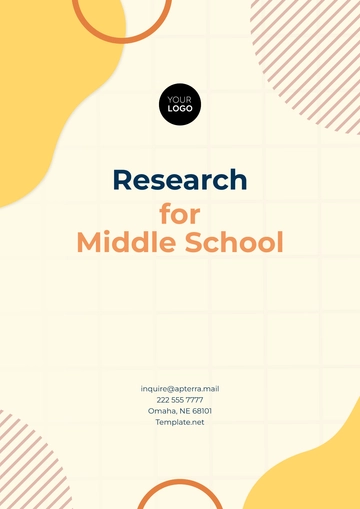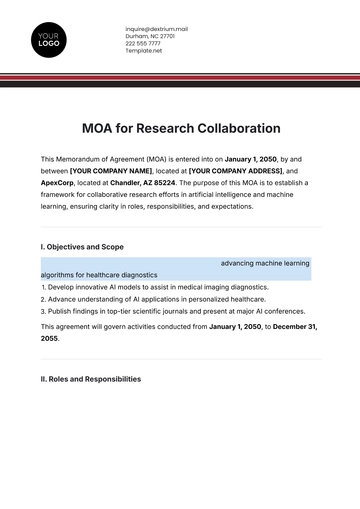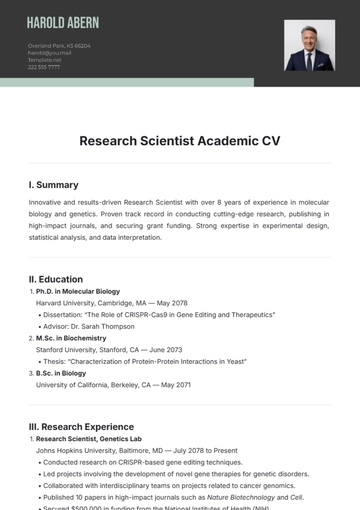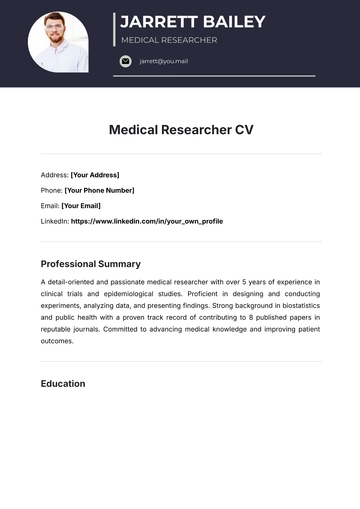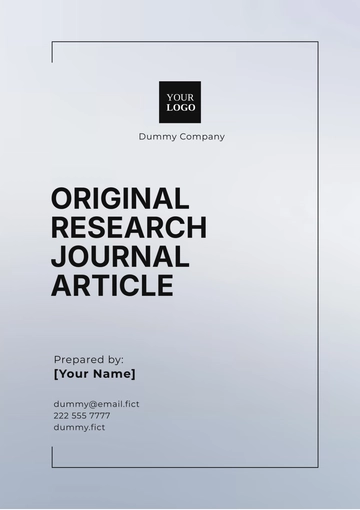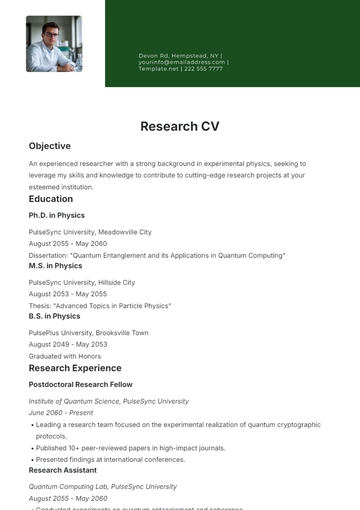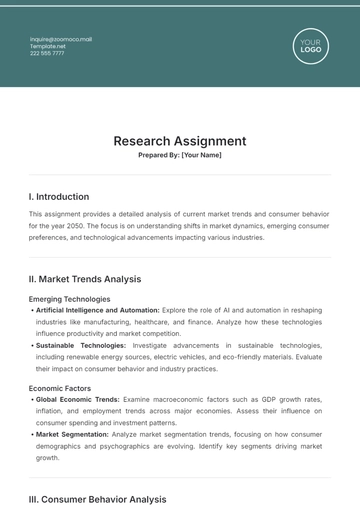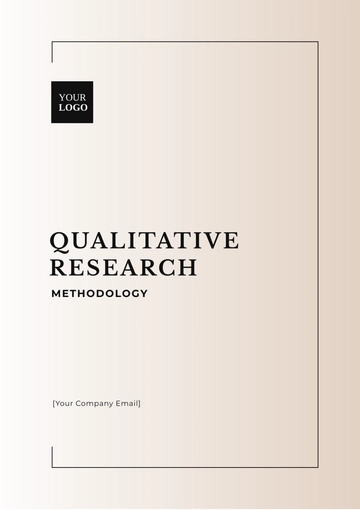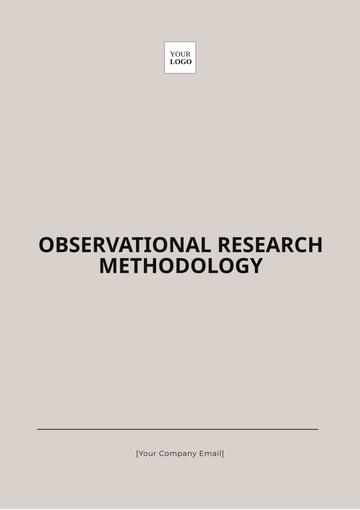University Research
I. Abstract:
This research aims to explore the effects of dietary supplements on cognitive performance within the context of nutritional neuroscience, with the goal of advancing scientific knowledge in the respective discipline.
The study employs a randomized controlled trial approach to gather and analyze data from 100 participants over a period of 12 weeks.
Preliminary findings suggest dietary supplements have a positive impact on cognitive function. This research contributes to the understanding of the role of nutrition in brain health and provides insights for further exploration into nutritional interventions and cognitive enhancement.
II. Introduction:
The introduction provides an overview of the research topic, its significance, and the objectives of the study. It presents relevant background information, discusses existing literature on the impact of diet on cognitive abilities, and outlines the research questions or hypotheses.
III. Methodology:
This section details the research design, participants, materials, and procedures used in the study. It describes the methods employed to collect and analyze data, ensuring transparency and replicability of the research process.
Participants: The study included 100 healthy adults aged 18-50, recruited through university advertisements and online platforms.
Materials: Standardized cognitive assessment tests, dietary supplement capsules (containing omega-3 fatty acids), and placebo capsules were used.
Procedure: Participants were randomly assigned to either the supplement group or the placebo group. Data was collected through cognitive assessments administered at baseline, 6 weeks, and 12 weeks. Statistical analyses were performed to compare changes in cognitive performance between groups.
IV. Results:
The results section presents the findings of the study, typically through text, tables, and figures. It provides a clear and concise summary of the data collected and analyzed, highlighting key observations and patterns.
Condition | Mean Score (SD) | T Value (df_ | P- Value |
|---|
Experimental | 72.45 (5.67) | 6.78 (48) | <0.001 |
Control | 68.20 (4.92) | | |
In this hypothetical study, the experimental group (n=50) received a specific intervention, while the control group (n=50) did not. Mean scores, standard deviations (SD), t-values with degrees of freedom (df), and p-values are reported. The results indicate a statistically significant difference between the experimental and control groups, suggesting the effectiveness of the intervention in influencing the dependent variable.
V. Discussion:
The discussion interprets the results in the context of the research questions or hypotheses. It examines the implications of the findings, compares them with existing literature on supplementation and cognitive function, and addresses limitations such as short duration and potential participant bias. Future research directions may include longer-term studies and investigations into different types of supplements.
VI. Conclusion:
The conclusion summarizes the key findings of the study, reiterates its significance, and suggests potential avenues for future research. It emphasizes the contribution of the study to advancing scientific knowledge in the field of nutritional neuroscience.
VII. References:
The references section lists all sources cited in the research, following a standardized citation format such as APA or MLA.
Research Templates @ Template.net





